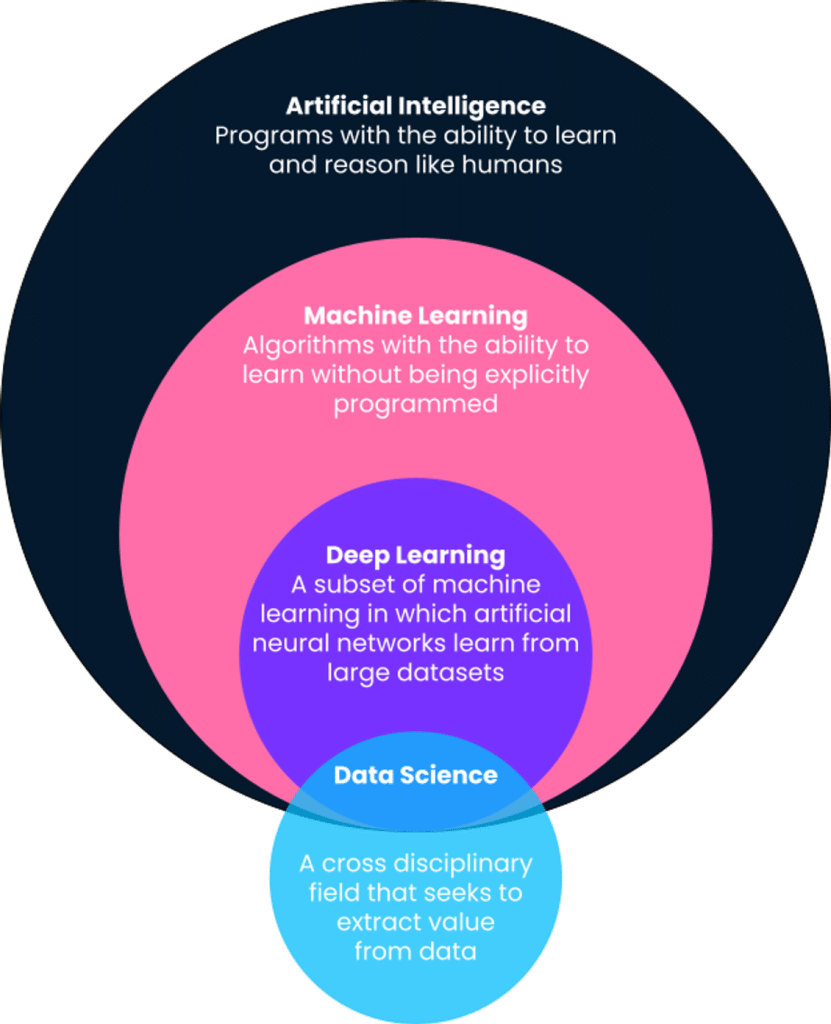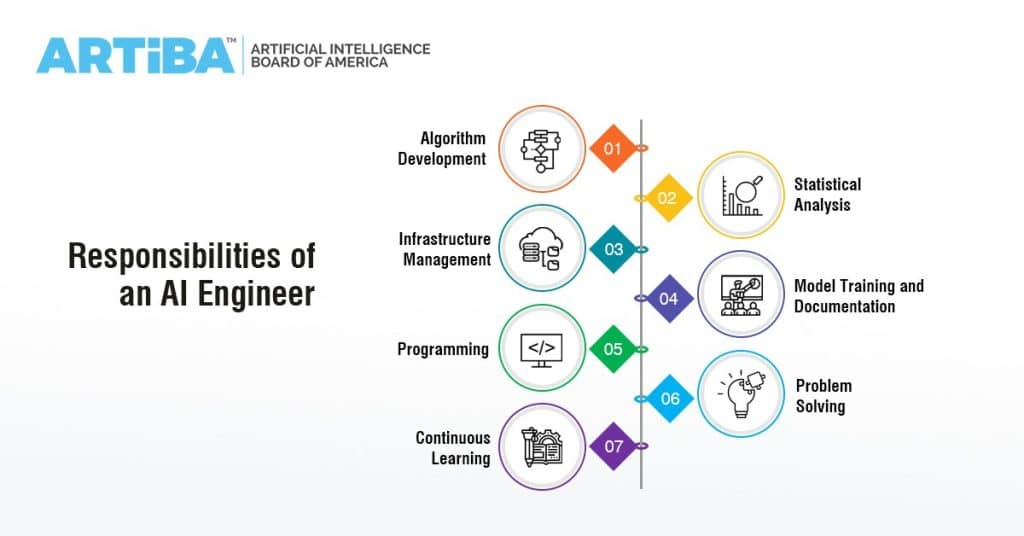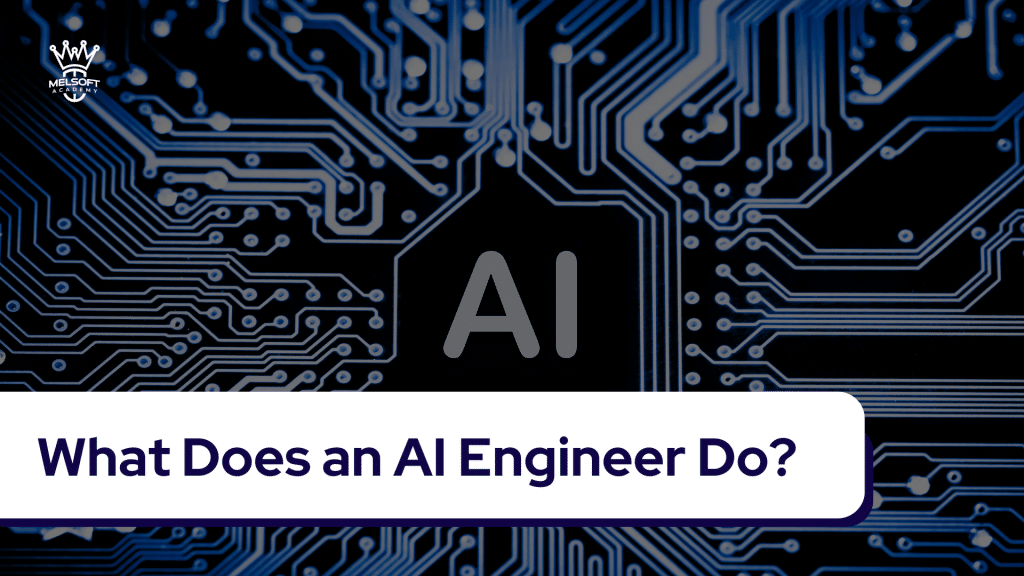Artificial intelligence (AI) is rapidly transforming industries, and at the forefront of this change are AI engineers. These highly sought-after professionals design, develop, and maintain the AI systems that drive innovations like self-driving cars and personalized recommendations on streaming services. The demand for AI engineers is booming, with the World Economic Forum predicting a 30% growth in related employment roles by 2027. But what exactly does an AI engineer do? Let’s explore this exciting and impactful career path.
Understanding AI and Its Relationship to Machine Learning

Before delving into the role of an AI engineer, it’s essential to understand the fundamentals of artificial intelligence and its relationship with machine learning. At its core, AI enables computers and machines to mimic human cognitive functions such as problem-solving and decision-making. This is achieved by combining vast datasets with sophisticated techniques, allowing systems to learn from past data to predict future outcomes.
Machine learning (ML), often confused with AI, is actually a subset of it. While AI encompasses a broader range of technologies, ML focuses specifically on identifying patterns within data and building models. Think of AI as the overarching concept of creating intelligent machines, with ML serving as a specific tool to achieve that intelligence. For example, a machine learning model might be a component of a larger AI system, but the AI itself can incorporate other elements beyond ML.
The Role of an AI Engineer

Key Responsibilities of an Ai Engineer
AI engineers serve as the architects of intelligent systems, bridging the gap between theoretical AI research and practical applications. Their responsibilities often overlap with those of machine learning engineers, yet AI engineers take a more holistic approach, considering the broader business context in which these systems operate.
A significant aspect of an AI engineer’s role involves collaborating with various stakeholders. They work closely with business leaders, software developers, and data scientists to identify opportunities where AI can enhance processes, improve decision-making, and drive revenue growth. This requires not only strong technical skills but also effective communication to translate complex concepts into business-relevant terms.
In addition, AI engineers are responsible for developing and maintaining the underlying infrastructure necessary for AI systems. This includes designing data pipelines, managing cloud computing resources, and ensuring that models are deployed effectively. Their work often involves applying various machine learning techniques, such as image recognition and natural language processing, to solve specific problems.
Another critical responsibility is the iterative process of building and refining machine learning models. This involves selecting appropriate algorithms, training these models on large datasets, evaluating their performance, and continuously improving their accuracy and efficiency. AI engineers need a deep understanding of various algorithms, including neural networks and decision trees, to ensure optimal results.
Finally, AI engineers also focus on creating APIs that enable other applications to interact with machine learning models. By developing robust data pipelines, they can transform messy, unstructured data into a structured format suitable for training models, which is essential for effective AI implementation.
Essential Skills for AI Engineers
The role of an AI engineer demands a unique combination of technical and soft skills. Proficiency in programming languages such as Python, R, or Java is crucial, as these languages are foundational for building and deploying machine learning models. Familiarity with machine learning frameworks like TensorFlow and PyTorch is also important for effectively implementing various algorithms.
Moreover, AI engineers should have a solid understanding of machine learning algorithms, including both supervised and unsupervised learning techniques. Knowledge of deep learning architectures, such as convolutional and recurrent neural networks, is increasingly vital for tackling more complex AI challenges.
Beyond technical skills, soft skills play a significant role in an AI engineer’s success. Effective communication is essential, as they must convey complex concepts to both technical and non-technical audiences. Strong problem-solving abilities are crucial for analyzing and addressing intricate challenges that arise in the field, while teamwork and critical thinking further enhance their capability to work collaboratively in diverse teams.
Career Path and Salary
The path to becoming an AI engineer can vary. While a formal degree in computer science or data science is beneficial, many successful engineers have acquired their skills through online courses, boot camps, and practical experience. Building a solid foundation in essential skills and demonstrating abilities through projects is key to entering this field.
AI engineers are highly compensated professionals. Salaries vary widely based on experience, location, and company size, but they consistently rank among the highest-paying roles in the tech industry. The combination of high demand and specialized skills makes this a lucrative career choice.
Conclusion
The role of an AI engineer is multifaceted and dynamic, requiring a blend of technical expertise and soft skills. As AI continues to reshape industries, the demand for skilled AI engineers will only grow. This makes it a rewarding and lucrative career path for those passionate about mastering this exciting field. With the future of AI looking promising, AI engineers are at the forefront, driving innovation and shaping the world around us.



Thank you for the informative post! It was an enjoyable read. I’d love to know more and stay in touch—any chance we could connect?